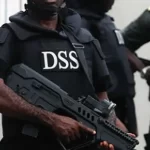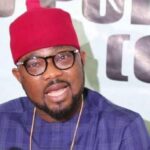By Ezenwa Nwagwu
As at today, discussions on the 2023 General Elections have continued to reverberate and tilting towards particular expectations, whether met or not.
I have read and still reading many articles and have listened to so many commentaries regarding whether the Independent National Electoral Commission (INEC) conducted a free, fair, inclusive, and credible 2023 election.
Many commentators have offered different viewpoints depending on where they stand; their understanding of INEC’s mandate, and the role that other stakeholders play in delivering the election.
While it is true that people have a right to express their opinions about the elections, we however owe it as a duty to not allow mischievous persons, and veiled partisans to control the narratives of how elections should be conducted.
In deconstructing the conduct of the 2023 election we have to ask in terms of: Did BVAS work? Do we understand the roles of INEC, Security agencies, political parties and politicians in the conduct of free and fair election? Do we understand the history of our elections? Are we partisans? etc
This is particularly important to enable us to reconstruct our narrative in a way that single out the places where there were challenges and not paint the whole election in black tar. And that for me will be the crux of our engagement
As we go into this discussion, let me begin by saying that some of the issues I will raise here might be uncomfortable for a lot of people. It is not my intention to cast aspersions but we must continue to help no matter how little to correct misinformation and tackle deliberate mischief, outright falsehood and twisting of logic.
We must be clear that because somebody is something or carries a big title does not mean that that person has invested time in understanding the election process.
It is important to invest in having this knowledge so as to avoid the preponderance of the wholesale delegitimization and condemnation of the entire election.
I would not also sit here to say that there were no issues in the 2023 elections. An election is not a church service. Election is a competitive enterprise. The challenge is that we give comfort to the real people who cause challenges in the election.
For instance, INEC does not cause voter suppression; Politicians do in collaboration with disgruntled INEC officials. INEC does not unleash violence; politicians unleash violence.
Now, the challenge sometimes is that, ninety per cent of the time, in discussing the 2023 election, we focus on INEC and we leave the role of security agents; we leave the role of the political parties and their candidates and the role they play in making bad elections. In the just concluded 2023 elections, INEC officials were killed, some were kidnapped. Are they not Nigerians?
Nigeria has conducted several elections in the past, and those who say this is the worst, we need to reflect and I have been reflecting – on what could be the basis of that claim?
You know, everyone who has lost an election, believes, and you hear them say that ‘this is the worst election since 1999.’ And that for me is scary. It is scary because it is founded on mischief and ignorance; ignorance of history, and ignorance of process. Where are we coming from?
So, the challenge is how do we reconstruct our narrative to avoid the preponderance of the wholesale delegitimization and condemnation of the entire election.
First, is to agree that election is a contest governed by rules and guidelines. More so, in our case, it is governed by the Electoral Act. Also, we have said repeatedly that election is a process, it is not an event.
We have continually maintained that Nigerians, our vigilance should not be short sighted. If we want credible elections, we have to follow the whole process, all the hog.
For the 2023 election, INEC had a plan. That plan was shared with political parties, civil society, and the media. INEC started with a voter registration exercise, that voter registration produced for us a 93 million voting strength from 84million in 2019.
Then the political parties went into the candidate selection process. The political parties recruited people who will fly under their banners. By our Constitution, individuals don’t run for election. In the ballot, there are no individuals, what you have in the ballot are political parties. From that point, we were presented with the 18 political parties who fielded candidates to run this election.
We went from there to creation of new polling units, all the voting points that used to be voting points were converted. So we now have 176,884 polling units away from the 120,000 that we used to have. All of this was to create access for more voters to participate in the electoral process. So after that, there was claims and objections. The voter Register was placed in the ward and in the polling units for one week, for citizens to go and check whether their names were omitted or not. And for the first time, INEC introduced an online system for claims and objections.
After all of that, we came to February 25th, which was D-day.
So if all of this process had been concluded, significantly, it came to the D-day. What happens on D-Day? The D-day is opening of polls, accreditation and voting, collation of results, announcement of results
On that D Day, voting and accreditation; Now it is important to emphasize that every report available from all the groups that observed the election showed that the BVAS had ninety eight (98) percent success, meaning it went well.
However, it would appear that the most controversial issue that many have held to is electronic transmission of results. Now, this is where many commentators have tried to mislead the majority of Nigerians, either intentionally or ignorantly.
The argument is that INEC promised to transmit results in real time but failed. But this is a moral issue and not a legal issue that should be used to delegitimize the entire election. It is important to state that going by the election Act, INEC results transmission process is manual. It is not electronic.
It is Manual because once the results are collated and announced at the polling unit, it is entered manually into a form called form EC8a, and handed over to party agents and security. It is the copy of that form EC8A that is captured and uploaded into IReV.
There is also the form E60 which offers a lift in terms of integrity level for election results management. This is what we call the people’s result, which is pasted, mandatorily on the wall for interested voters in that polling unit. They can have an opportunity to take a snapshot.
So, in addressing the different layers of access to election results, the voter in the polling unit has been satisfied by E60 and the party agent has also been satisfied by form EC8A. So, any serious political party who has agents in all of the polling units already has access to all of the results.
So, it is absurd for anyone to think that collation ends when results have been uploaded on the IREV.
The IReV is more or less like an auditor. If the result that has been produced from the polling unit and taken to the collation centre is not matching with what was brought, the returning officer can refer to IReV. This is if there’s a dispute. If there is no dispute, then it is not important to go to the IReV. It is like the VAR in football. You have to score a goal. If there is doubt about the goal, you go to a VAR. You don’t subject every goal to VAR just because the opponent does not like the goal that has been scored; and says let us take every goal that has been scored to VAR.
Number two: Anybody who followed the 2023 elections might have been able to look at the context in which that election was held. This created the challenge of logistics for the electoral umpire.
The issue of the unnecessary colouring of the Naira, which brought about shortage of cash both for citizens and for institutions. And for an organisation like INEC that its activities actually depend on vendor relationship, that catastrophic policy of the CBN was a setback for logistics for the election. We also know the issue of fuel scarcity during that period.
Besides, in good times, the issue of perennial and logistic challenges is something we’ve not been able to cure, because we’re also a big country. And we’re also now battling with issues of insecurity, banditry in some parts of the country.
Beyond all hues and cries, we have to admit that this is one election that has thrown up something we have not seen in Nigeria. The chairman of a ruling party lost his states. The President lost his state, the presidential candidate of a dominant political party lost his states. Some governors in the ruling party lost their states. Knowing our election history, this is something that reflects that the process is effective, and it couldn’t be manipulated
This was also the first time that we did not postpone an election in the last three election cycles. We braved the odds. In 2011, Professor Attahiru Jega called off the election when the election had already started. We postponed in 2015, we postponed in 2019. So, if we successfully pushed through in spite of these challenges, I think the people who manage that election should be commended, in spite of these challenges that we have outlined.
Yes, it is true that there was violence, and suppression of votes. In talking about violence, we have to use statistics and science. That is to say, in the 176,000 polling units across the country, how many polling units were affected by the violence, voter suppression and all of that?
So these outcomes also validate the fact that first and foremost our BVAS has helped us. We also saw situations where using the electoral Act 2022, INEC was able to review some of the results that came from states like in the case of Adamawa and Abia.
As we conclude, I must emphasize that the essence of this engagement is that people who have knowledge about our electoral process and the guidelines must speak up and not allow partisans venting their frustration to take over the narrative. That’s my challenge. And I’m saying those who have this knowledge must separate what has gone well, and what has not gone well.
If we don’t do that, we will then be consumed by the lies, the propaganda, and the misinformation and disinformation that characterize public commentary and engagement after the election.



